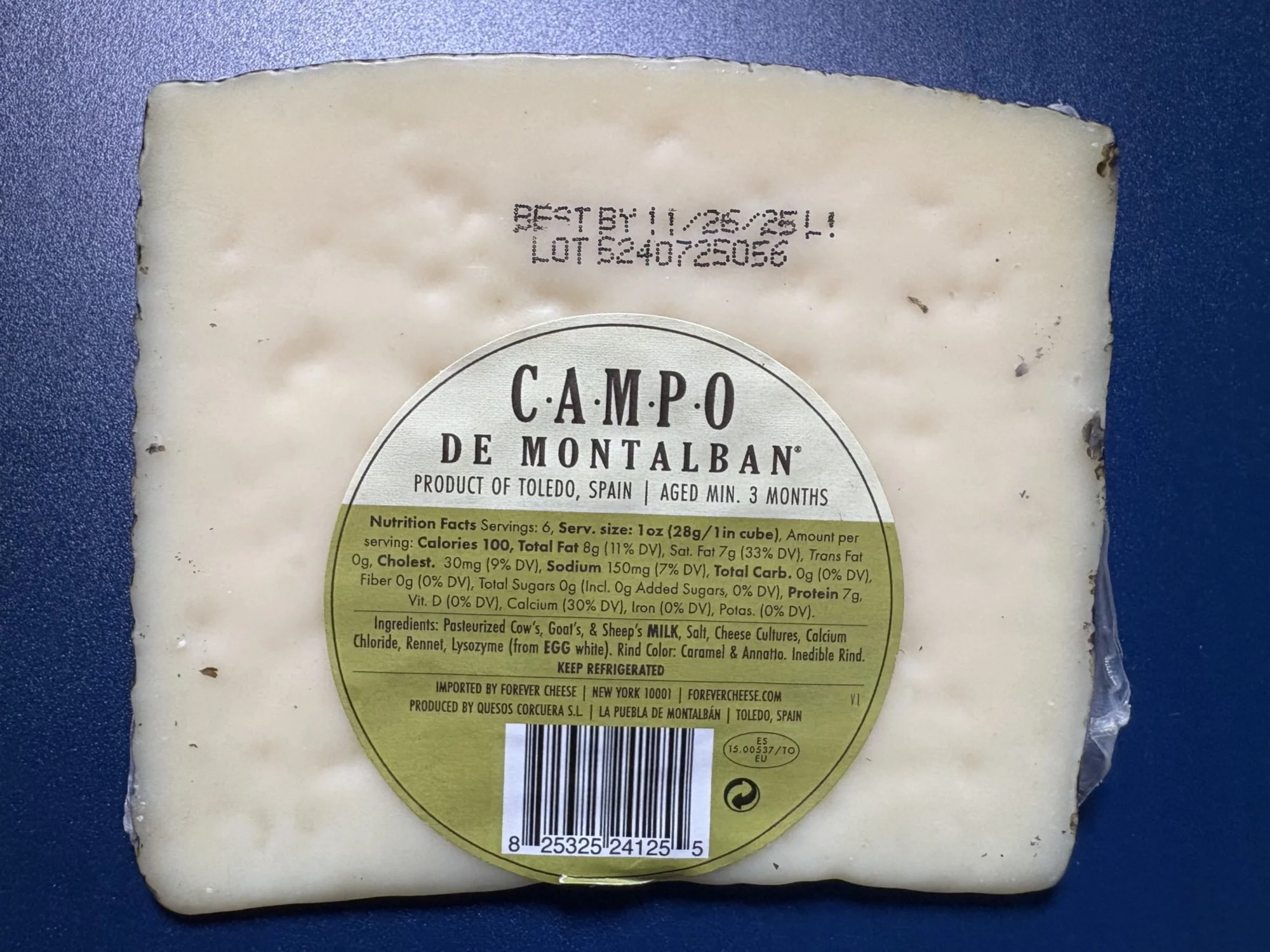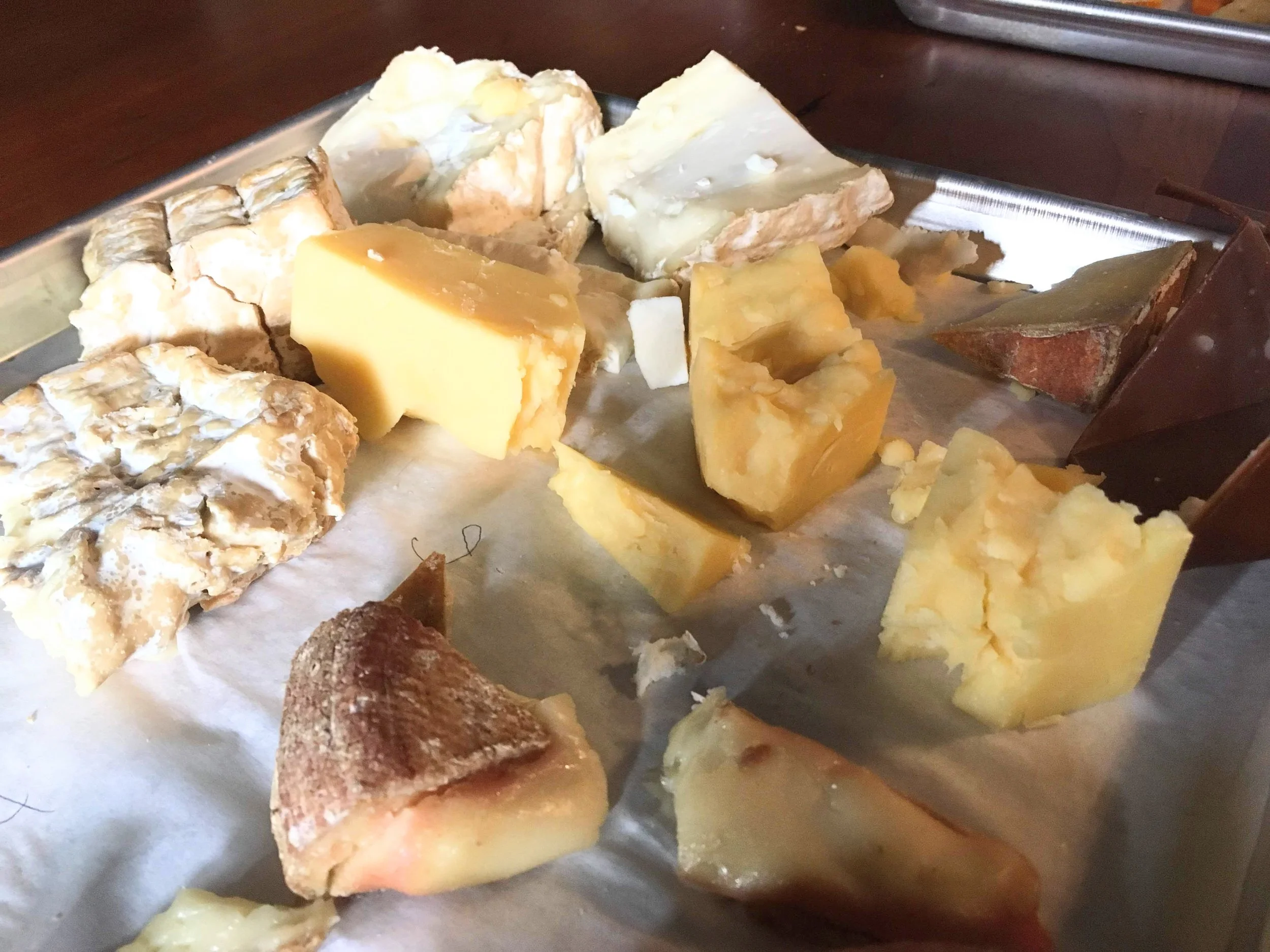Cheesemonger’s Secret to Scoring the Best Cheese
Shopping for cheese photo credit depositphotos
You may think that as a cheesemonger, I secure the best artisan cheeses for myself by swooping down on them the moment they arrive at my store. But I do quite the opposite: I score some superb cheeses, the loveliest specimens of their kind, by trolling the cheese counters at markets around my city that carry the quality stuff, and when I see those darlings marked down for clearance, I snatch them up as greedily as a kid at an Easter egg hunt.
Best By Dates
Cheese with best by date
It’s not because an expensive item has been marked down, although that’s an added bonus. No, I’d gladly pay full price for them, because when those cheeses are creeping toward the best-by date so dreaded by the average customer, that’s when they’re at their very best (the cheeses, not the customers!).
Sadly, consumers often assume that “best-by” means “eat-it-after-this-date-and-you’ll-be-sorry.” Not so! Cheese is continuously evolving, and while it certainly can go south on you when it’s aged beyond its capabilities, it has a sweet spot that should be respected. The best-by date on a cheese is the expert estimate of the artisans who create it that it will in fact be at its peak flavor and texture right at that point. It may be good before then, but why settle for good when you can have sublime?
“Expiration” tends to be a catch-all term for consumers, when most labels more precisely read “best by,” which has to do with an item’s flavor and quality, “sell by,” which helps the grocer rotate product, and “use by,” which means to consume the product by the date shown, although it’s likely just fine a day or two past that date. This is when you use your best judgment. The only foods required by law to have firm use-by dates are infant formula and baby food.
It's Alive!
Ripe cheeeses photo credit Carol Penn-Romine
It's understandable that for some, artisan cheese is a mysterious thing, often viewed with suspicion. The fact that it isn’t mass-produced, loaded with preservatives, and rendered shelf-stable like so much of what’s at the market makes it even more of a mystery. Cheese is a living thing, created by fermentation just like wine, beer, yogurt and kombucha, to name just a few of its fellow living foods. Even chocolate is produced by fermenting cocoa beans. As a living thing, cheese is constantly evolving, which is why it tastes better and better—up to a point. Savvy consumers should keep these tips in mind for figuring out just what that point is.
If you bought a cheese and forgot about it (hey, it happens to even the most cheese-passionate among us!) and then it migrated to the back of your fridge where it sat, forgotten as its best-by date encroached, do a little investigative work before you toss it. You’ve already paid for it, so what’s the harm in giving it a try?
Evaluating the Cheese in Your Fridge
Smelling and tasting a cold cheese will tell you nothing, so unwrap it first and let it come up to room temperature. Allowing the cheese to air out a bit can also help mellow the attitude that might have built up inside the wrapper. Only then should you give it a sniff and a taste. If it pleases you, enjoy it. If it doesn’t, you can bid it a wistful adieu with a clear conscience.
If you have a brie or some other bloomy rind cheese with a rind that’s begun to dry out and crack, carve away the rind, examine the paste inside and give it a taste. Sometimes an old rind is unpleasant, while what lies beneath it can be quite enjoyable. This is something you can’t know unless you brave up and give it a go. (One note: fresh cheeses such as mozzarella, ricotta, cottage cheese and fresh chèvre are not produced through fermentation, and once they’ve gone south, you must toss them.)
Talk to an Expert
Cheesemonger behind the counter photo credit depositphotos
If you’re at the cheese counter and looking suspiciously at a near best-by dated cheese, talk to your cheesemonger about it and get their estimation. I promise, we’re not just trying to move merchandise we don’t want to shrink out. If we did that, you’d never trust us again, right? We love cheese, and we want you to have a good experience and love it too.
It’s frustrating as a cheese professional to face those customers who are convinced that I’m simply trying to unload a cheese that’s past its prime. Why would I risk ruining a good relationship with a customer by pressing them to take home a cheese I know isn’t good? It’s about building trusted relationships, not making the quick one-and-done sale. It’s the long game, my friends, the long game. I’m excited about cheese, and I want you to be too.
So the next time you see a cheese marked down for quick sale and bearing a close best-by date, brave up and give it a try. You could well be in for an exemplary experience. The truth is, an encroaching best-by date on a cheese is my trusted friend. And it can be yours too, so don’t mind the date—just seize the cheese!




